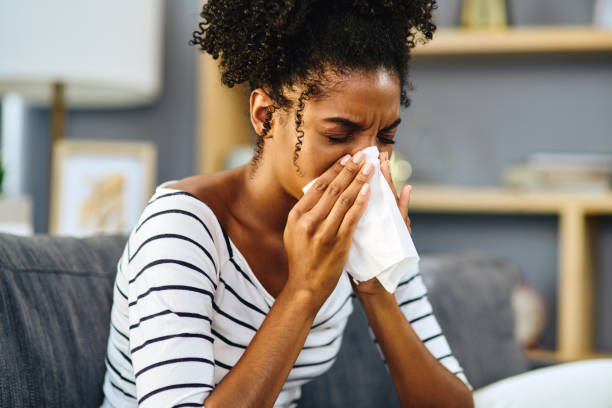
One of the best things about summer is the sun. Like New Edition said, everybody loves sunny days. It’s something about being able to get up in the morning, look out and have the sun greet you with a hello and stay with you during the entire day until it’s time to say goodnight late into the evening. The fun you get to have in the summer, the freedom of not having to be suffocated by heavy and thick clothing, the time you get to spend with your family, and more are great as well. Summer has so many great highs to it that you can see why it’s a fan favorite when it comes to which season people like more. Now with all of that, there are some downsides to summer like the scorching heat that sometimes makes it impossible to enjoy anything but that’s not even the worst part of summer. No, the worst part of summer is the pollen and it will knock you out every time if you’re not properly prepared.
Allergies And How You Develop Them
When it comes to allergies, they will have you down for the count every time. Allergies appear when your immune system starts to react to a foreign substance. These substances can be the poison (venom) from a bee, food, or pollen.
If you are someone who has allergies, then your immune system will create antibodies that will deem certain allergies as harmful even when they aren’t. Simply put, your immune system will make stuff and you just have to deal with it.
That’s why when you eat a food you’re allergic to or come in contact with pollen, it will trigger a reaction such as inflammation on the skin, digestive system, sinuses, or airways.
Some people experience minor inflammation, which means they don’t suffer from severe allergies, while others experience extremely severe and life-threatening allergies. Everyone’s severity of allergies is different so it truly depends on the person.
RELATED: Climate Change, Pollen, and Asthma – What Does This Mean For You?
How Pollen Affects Your Everyday Life
If pollen triggers a reaction within your immune system, this can make for some very uncomfortable and sick days. If you are allergic to pollen, you can suffer from sneezing, itching all over, a runny and stuffy nose, problems with your airways that lead to trouble breathing and swollen or watery, red eyes. This can make going outside difficult and simply walking into a store or enjoying open windows a struggle.
Pollen can also cause anaphylaxis. Anaphylaxis is a severe reaction to allergies that can be deadly and life-threatening. Symptoms of anaphylaxis include loss of consciousness, nausea and vomiting, weakness and fatigue, severe shortness of breath, drops in blood pressure, skin rashes and a rapid and weak pulse. Suffering from any of these symptoms whether it be moderate or severe can make a simple daily task during the summer season extremely hard and impossible to do.
Pollen And COPD
Since pollen can affect your airways and cause you trouble breathing, there’s no question that it can trigger COPD. COPD, also known as chronic obstructive pulmonary disease, is a group of lung conditions made up of chronic bronchitis and emphysema. It’s usually linked to people who have a history of smoking cigarettes.
People living with COPD usually have asthma or environmental allergies (pollen). Pollen can worsen your COPD and its symptoms because of how your body reacts to allergies (remember how the immune system makes up antibodies?).
With COPD your airways are already chronically inflamed and filled with mucus so if triggered, it will cause an even worse attack and more mucus build-up making it feel like it’s impossible to breathe.
Usually, your breathing will become worse and you can be easily triggered during the time of year when pollen from seasonal plants is present when living with COPD.

3 Great Tips To Beat That Pollen Attack This Summer
When fighting against your allergy to pollen, whether it be moderate or severe or you’re living with respiratory problems, there are ways to lower the risk of attacks and triggered symptoms.
One great tip is to try to limit your outside activity. This doesn't mean stay in the house all summer, but simply be mindful of how long you’re going to be outside. If you notice that you’re beginning to struggle to breathe, then it’s time to go back indoors.
Another great tip is to take allergy medicine. Whether it is prescribed by the doctor or over-the-counter (Claritin, Zyrtec, etc), take allergy medicine daily and as directed.
What you can also do to avoid pollen attacks this summer is check your weather forecast for how bad the pollen is in your area, keep your windows closed and use air conditioners with a HEPA filter.
Pollen is going to be around until the end of time so don’t let it destroy your current and future summer plans.








